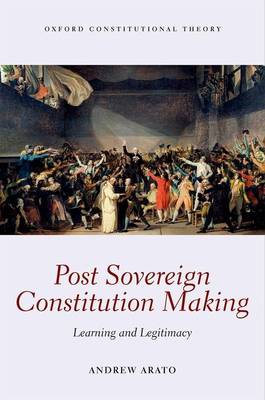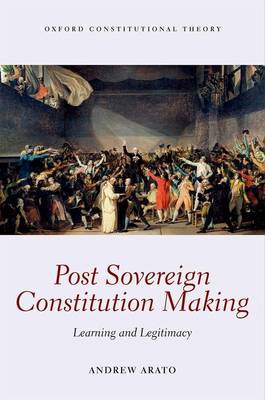
Je cadeautjes zeker op tijd in huis hebben voor de feestdagen? Kom langs in onze winkels en vind het perfecte geschenk!
- Afhalen na 1 uur in een winkel met voorraad
- Gratis thuislevering in België vanaf € 30
- Ruim aanbod met 7 miljoen producten
Je cadeautjes zeker op tijd in huis hebben voor de feestdagen? Kom langs in onze winkels en vind het perfecte geschenk!
- Afhalen na 1 uur in een winkel met voorraad
- Gratis thuislevering in België vanaf € 30
- Ruim aanbod met 7 miljoen producten
Zoeken
Post Sovereign Constitution Making
Learning and Legitimacy
Andrew (Dorothy Hart Hirshon Professor of Political and Social T
€ 159,95
+ 319 punten
Omschrijving
Combining historical comparison, constitutional theory, and political analysis, this volume links together theory and comparative analysis in order to orient actors engaged in constitution making processes all over the world.
Specificaties
Betrokkenen
- Auteur(s):
- Uitgeverij:
Inhoud
- Aantal bladzijden:
- 320
- Reeks:
Eigenschappen
- Productcode (EAN):
- 9780198755982
- Verschijningsdatum:
- 10/03/2016
- Uitvoering:
- Hardcover
- Afmetingen:
- 165 mm x 244 mm
- Gewicht:
- 648 g

Alleen bij Standaard Boekhandel
+ 319 punten op je klantenkaart van Standaard Boekhandel
Beoordelingen
We publiceren alleen reviews die voldoen aan de voorwaarden voor reviews. Bekijk onze voorwaarden voor reviews.









